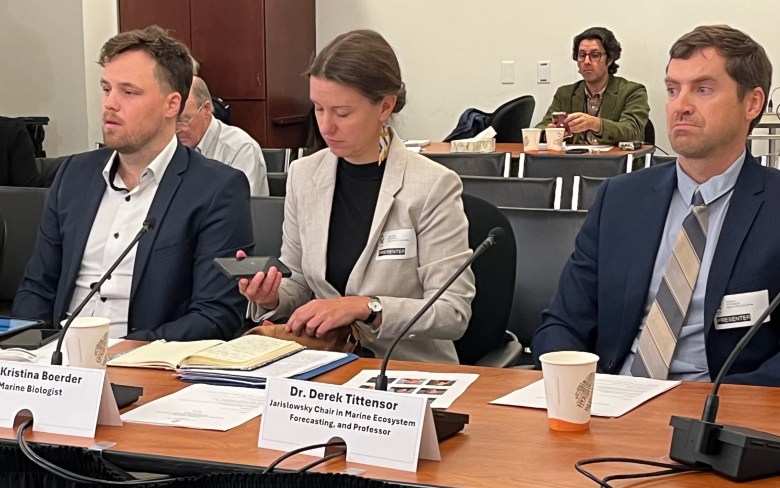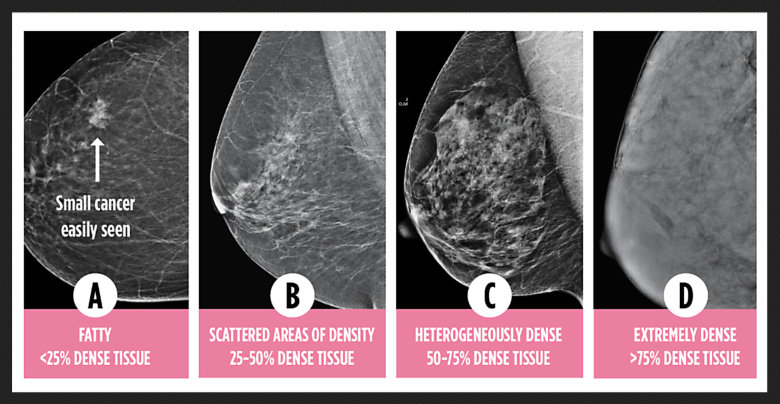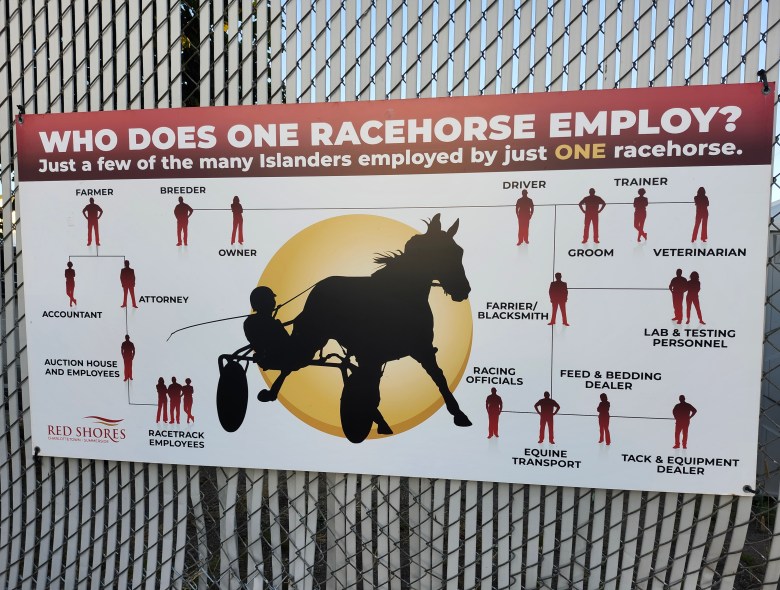I had to make a car insurance claim over the weekend. (Everyone is fine). We left the car parked at the local Legion (with permission) and got a lift home. I was about to call the insurance company, when I remembered that I have watched many hours of baseball over the last few weeks, and the games have been punctuated by ads from insurance companies touting how easy it is to deal with them through their apps.
Fine. I downloaded the app.
TD has an ad that shows a couple being remarkably calm about the tree limb that’s toppled onto their car and damaged it while they are on a camping trip. The guy comes over and asks the woman if she’s filed the claim yet. She’s taking photos of a bird on the car. Another tree limb crashes down. They don’t seem perturbed. The insurance company will estimate the cost to fix the damage based on their photos. All is good.
Belair also has an everything-is-chill ad featuring two people whose cars have gone off the road (I think? Clearly, it’s not as memorable an ad) and a cow who won’t get out of the way. Again, everyone is super calm in this situation. The insurance will take care of them.
I know, of course, that insurance company ads are BS, and that dealing with the companies can be a fraught and nerve-wracking experience, but I liked the idea of not having to phone in my claim. So, I opened the app.
I’ll give the app this: It was easy. I hit the right buttons describing the circumstances, and wrote what happened as succinctly as I could. I also followed the advice to get a police report (which I may not have thought of doing otherwise; nobody else was involved). The app said someone would get back to us in 24-48 hours, and that it would let us track the progress of the claim. Perfect!
Well, after 36 hours had gone by and I hadn’t heard anything, I decided to check in on that progress. The app gave me the name of the person responsible for the claim, their phone number, and their email. I phoned and got the voicemail. I emailed. I checked the progress of my claim in the app, and it said that the car had been towed to my repair shop (I had not given the name of a repair shop) and they were currently assessing the damage.
No, the car was still sitting parked at the Legion.
I just wanted to hear from the insurance company, to know what to do with the car, and to get a rental because of the whole living-in-the-country-with-only-one-car thing.
I still hadn’t managed to connect with the insurance company as the 48 hours drew near, but the car rental folks called and told me we had been approved for a rental, and they also told me where our car was going to be towed. (Somewhere far away and inconvenient, which I was going to have to change).
Yesterday, I spoke with the claims adviser, and he was friendly enough, and I am sure he is wildly overworked and none of this is his fault. He arranged for a tow, and asked me where I wanted the car taken. All good.
Then the texts and the emails and the calls started:
Text telling me the tow truck is on its way
Text informing me the tow truck has picked up my car: press 1 if it was on time, press 2 if it was late, press 3 if it did not show up (the last one seems to contradict the premise of the text)
Call from the body shop asking if the car was going to be towed there
Email from the body shop telling me the car had arrived, and it would be ready to be picked up on Nov. 25
Email from the body shop telling me I had an appointment an hour ago (my email flagged this as “POTENTIAL CONFLICT” since I had something else on my calendar for the same time)
Email from the rental company
Text from the rental company
And so it goes.
All of these make sense on their own, and they are probably no worse (except for the misinformation) than just having to sit by the phone and wait to hear back. But holy hell, it seems like a lot of unnecessary information. The body shop email offers a link to a “Repair Status viewer” that allows me to track the status of my vehicle at any time, but it’s just a static web page with an image of the same information that’s in the email. No updates.
At one point, I did decide to call the insurance company’s main line, since the claims person’s number always went straight to voicemail. It was 7:10pm, and the call centre closed at eight. Estimated wait time was 45 minutes. At 7:48pm, estimated wait time was five minutes. At exactly 8pm, a recording said that “due to technical difficulties” my call couldn’t be answered, and to call back tomorrow. Why not just say the call centre is now closed? I can’t believe technical difficulties suddenly arose right at closing time.
I don’t know what the outcome of this particular claim will be, but I have not had complaints about our coverage and treatment in the past, so this is not a being-screwed-over-by-the-insurance story.
But a couple of things do stand out to me about this whole experience.
The key one is that it seems like a good metaphor for our situation generally: We are awash in information, but the quality of it is lacking. What I needed was someone (on the phone, in an email, through the app, whatever) to tell me, “Hey, here’s what’s happening with your car,” and for that information to be timely and accurate. Instead I get false information (the car is being assessed, when it’s not), and an overload of irrelevant information (the exact time the car arrived at the shop).
This morning, the app informs me that the damage has been assessed and the repair completed, which I can absolutely guarantee is not true.
Hopefully it all works out. I’m going to check the actual progress of my claim after swiping away the box asking me how much I am enjoying using the insurance company app.
(To send or post this item, copy the website address at the top of this page.)
RECENTLY IN THE HALIFAX EXAMINER:
1. ‘She was neglected and abused and nobody cared’: Advocates say Protection for Persons in Care Act ‘a broken system’
 David and Judy Austen.
David and Judy Austen.
Jennifer Henderson reports on the stories of people who have been failed by Nova Scotia’s Protection for Persons In Care (PPIC) Act, including a man whose wife suffered from neglect, a woman whose mother spent two days screaming in pain, and a nurse who found herself with no recourse when she was falsely accused of abusing a patient.
What the stories all have in common is that they represent failures of the PPIC when it comes to both investigation and enforcement.
Henderson writes:
Under Nova Scotia’s Protection for Persons in Care Act, individuals and corporations can be fined for breaking the act. A nursing home may have their licence to operate revoked or suspended.
However no fines or suspensions have ever been levied, despite the fact the office receives approximately 600 complaints a year, 10% of which are chosen for a formal investigation.
Statistics for the past five years show for-profit homes such as those operated by Shannex and Gem have a higher number of proven complaints than homes run by community boards such as Saint Vincent’s. Both public and privately operated homes struggle to recruit and retain enough staff to provide care for residents with increasingly complex needs.
Retired nurse educator Susan Charlton whose father died in care after complications from a fall, describes the PPIC Act as “weak, vague, and toothless.”
Click or tap here to read “‘She was neglected and abused and nobody cared’: Advocates say Protection for Persons in Care Act ‘a broken system’”.
(Send this item: right click and copy this link)
2. Halifax council approves regional strategy for Dartmouth museums
 Dartmouth Heritage Museum on Newcastle Street in January 2024. Credit: Suzanne Rent
Dartmouth Heritage Museum on Newcastle Street in January 2024. Credit: Suzanne Rent
Suzanne Rent writes:
Halifax regional council voted in favour of a regional museum strategy with one councillor asking that a collection of thousands of Dartmouth artifacts now in storage be included in a new venue plan.
A report on the regional museum strategy went to Halifax regional council during its meeting on Tuesday. Staff recommended that council consider increased staffing in the 2026-2027 budget and that $2.4 million now in a capital reserve be used for repair work on municipally owned heritage museum properties.
Staff also recommended that Quaker House and Evergreen House, which are operated by the Dartmouth Heritage Museum, be given priority.
The former municipally-run Dartmouth Heritage Museum building was condemned in 2002, and many of the artifacts previously on view at the museum are in storage. Rent reports on the discussion around where and how to display them:
Coun. David Hendsbee asked that some of the collection be put in exhibits in MacPhee House Museum in Sheet Harbour, Fairbanks Interpretative Centre, Alderney Landing, or even in the big mall in Dartmouth.
“This is the type of stuff our citizens need to know more about,” Hendsbee said. “It’s worthwhile to bring the life from underneath the bushel and show what kind of assets we have that are stored away in the archives.”
Click or tap here to read “Halifax council approves regional strategy for Dartmouth museums.”
(Send this item: right click and copy this link)
3. Coastal protection groups entangled in red tape, provincial committee hears
 From left, Simon Ryder-Burbidge, Ecology Action Centre, Kristina Boerder, marine biologist, Derek Tittensor, marine biologist and Dalhousie University Jarislowsky chair at the legislature’s Oct. 28 natural resources and economic development standing committee meeting. Credit: Jennifer Henderson
From left, Simon Ryder-Burbidge, Ecology Action Centre, Kristina Boerder, marine biologist, Derek Tittensor, marine biologist and Dalhousie University Jarislowsky chair at the legislature’s Oct. 28 natural resources and economic development standing committee meeting. Credit: Jennifer Henderson
Jennifer Henderson reports that groups working to prevent coastal erosion told the province’s natural resources and economic development committee that their work is being hampered by complicated permitting processes.
From the story:
Kristina Boerder, a marine biologist who has worked on coastal restoration projects with many community groups, said one of the problems is that DNR uses the same process to evaluate and issue a permit to plant eelgrass as it does for permits to erect a stone wall to armour the shoreline or build a wharf.
These projects are not on the same scale, she argued. Boerder estimated the average wait to receive a permit from DNR is two to five months, while the window when eelgrass planting can occur is just two months long in the early summer.
“Organizations like the Confederacy of Mainland Mi’kmaw and Ecology Action Centre, with the expertise, the time, and the funding, face significant red tape in obtaining these permits,” Boerder said during her presentation to the committee.
“How can it be expected that an individual landowner or community member would be able to navigate this process. If ecosystem restoration is a key strategy for this climate adaptation we are talking about, then streamlining permits should be part of the solution.”
Nobody from the department was present at the committee meeting.
Henderson also notes that the committee voted down a motion brought by Liberal MLA Iain Rankin “aimed at garnering support to make the West Mabou Beach Provincial Park off-limits for any proposed development that would ‘remove, downgrade, or alter the protected status.’”
Click or tap here to read “Coastal protection groups entangled in red tape, provincial committee hears.”
(Send this item: right click and copy this link)
4. Where Natalie MacMaster, Michael Jackson, and the moonwalk meet
 Credit: Photo from I Have a Love Story – copyright 2025 Natalie MacMaster / M&P Publishing
Credit: Photo from I Have a Love Story – copyright 2025 Natalie MacMaster / M&P Publishing
Evelyn C. White is a fan of both Michael Jackson and Natalie MacMaster — and in a new story, she speaks with MacMaster about her career, her new book (most of which she wrote on her phone), how her Cape Breton upbringing anchored her…and about Jackson’s trademark dance move, the moonwalk.
White writes:
I was in the audience (circa 2019) when, during a concert with Symphony Nova Scotia (SNS), the musician moonwalked across the stage while playing her fiddle…
In a recent phone chat, MacMaster said that she started practicing the moonwalk when she was a teenager.
“I was a huge Michael Jackson fan,” she told me, noting that she began playing the fiddle at age nine. “I had posters of him on my wall, everything.”
She continued: “Growing up in Cape Breton, I knew I’d probably never see him perform, so I took to learning his most famous dance step, seriously. I also did Highland dancing and began to throw in the moonwalk with that. The combination looks really good on stage.”
MacMaster said she had plans to become a teacher, because she likes kids and teaching could provide an income that would support her music career. But then the gigs just kept coming.
Click or tap here to read “Where Natalie MacMaster, Michael Jackson, and the moonwalk meet.”
(Send this item: right click and copy this link)
5. Nova Scotia leads country in optimal breast screening practices, but continues to fail women with dense breasts
 Levels of breast density. Credit: Dense Breasts Canada
Levels of breast density. Credit: Dense Breasts Canada
In a commentary, Jennie Dale, executive director of the non-profit Dense Breasts Canada, writes:
Nearly half of all women who have a mammogram are told they have dense breasts. Dense breasts are common but carry two serious risks: they increase the chance of developing breast cancer and they make cancer harder to detect. On a mammogram, dense tissue and cancer both appear white, creating a masking effect. The result? Cancers are often missed until they grow and spread, leading to more aggressive treatment, higher costs, and worse outcomes.
The good news is that there is a clear, evidence-based solution. Robust research from around the world shows that adding an additional screening test, such as ultrasound, MRI, or contrast-enhanced mammography, significantly improves cancer detection in women with dense breasts. The science is clear: when cancer is found early, survival rates rise dramatically. The five-year survival rate for Stage 1 breast cancer is almost 100%, whereas for Stage 4 it is about 32%.…
That’s why we are urging the provincial government to act now:
Fund supplemental screening (ultrasound, MRI, or contrast-enhanced mammography) for women with dense breasts.
Provide the staff, equipment, and capacity needed so women are not left waiting months or turned away.
Ensure women and healthcare providers receive clear, accurate information about breast density and options for further screening.
Click or tap here to read “Nova Scotia leads country in optimal breast screening practices, but continues to fail women with dense breasts.”
(Send this item: right click and copy this link)
IN OTHER NEWS
1. Cogswell and Church shelters reopening to new arrivals
 The tent encampment at Cogswell Park in Halifax. Credit: Jennifer Henderson
The tent encampment at Cogswell Park in Halifax. Credit: Jennifer Henderson
For CBC, Taryn Grant reports:
More than three months after Nova Scotia abruptly switched service providers and halted intakes at two supportive housing sites, a senior official with the province says the dust has finally settled from that shakeup and new residents have started filling vacant rooms.
The sites are on Cogswell Street in Halifax and Church Street in Dartmouth. They were formerly run by the non-profit Out of the Cold, until the province suddenly terminated their contract. They are now being run by the Atlantic Community Shelter Society (ACSS).
From Grant’s story:
Some sites, including the two that ACSS recently took over, are meant to be temporary in more than one sense of the word. Residents are expected to eventually transition to other housing, and the structures and operations themselves are not meant to be there indefinitely.
[Executive director of housing and homelessness with Nova Scotia’s Department of Opportunities and Social Development Jaime] Smith said no decision has been made about how long the Cogswell Street and Church Street sites will remain in operation, but she said they won’t be retired until there are permanent options available to replace them.
(Send this item: right click and copy this link)
2. Charlottetown casino revenue drops; horseracing stays steady
 Sign on a fence near the Old Home Week site in Charlottetown P.E.I., photographed on August 15, 2025. Credit: Philip Moscovitch
Sign on a fence near the Old Home Week site in Charlottetown P.E.I., photographed on August 15, 2025. Credit: Philip Moscovitch
Marilee Devries reports for CBC PEI that 2024-2025 profits from the Red Shores casino and racetrack fell 35% compared to the previous year. Red Shores is run by Atlantic Lottery Corporation (ALC).
ALC president Dallas McCready says the number of visitors hasn’t dropped, but they are spending less. From the story:
Many of the other provinces are experiencing the same type of thing with land-based casino operations,” he said. “The number of visits has been fairly consistent and strong, but the amount spent at each visit is certainly down.”
Red Shores has also been under construction, with a large expansion underway, which McCready cites as another possible factor.
“It’s just part of, you know, investing in the property and providing a great player experience,” he said. “It may have [been] a bit of a setback for us last year, but I think, you know, the years to come will certainly be well worth it.”
But revenue from live racing has not fallen.
Look, I am not a tourism industry or gambling expert, but I can’t help but feel that sinking a lot of money into a place to go play blackjack or slots is akin to investing a pile of money into a printing press for your newspaper chain.
If I were so inclined, I could play slots on my phone all day long. I could also gamble in any one of thousands of other ways. When casinos were illegal in most jurisdictions, building a casino meant you could cash in on tourist dollars. Then casinos were everywhere, and now we can all have mobile casinos in our pockets.
Horse racing seems different though. Sure, you can bet on the horses online, and many people do, but going to the track is an experience that’s hard to replicate.
When we go to Prince Edward Island in the summers, we generally go to the track. I bet a couple of bucks on each race, tip the people taking the bets, and if I come away from the experience without having lost more than 10 bucks or so, I’m happy. Maybe I’ll get some snacks too. I love to watch the people, enjoy the atmosphere, listen in on the conversations. If you go to the track with someone who actually knows a thing or two about horses, even better.
(Send this item: right click and copy this link)
Government
City
Board of Police Commissioners (Wednesday, 1pm, HEMDCC Meeting Space and online) — agenda
Accessibility Advisory Committee (Wednesday, 4:30pm, online) — agenda
Province
No meetings
On campus
Dalhousie
Wednesday
Naturalization Planting Event (Wednesday, 11am, LSC Biology Wing) — help transform a grassy wooded area behind the NRCan parkade into a thriving space with native pollinator-friendly species
Thursday
Group Read – Reclaiming Power + Place: The Final Report (Thursday, 12pm, Indigenous Student Centre and online) — details
Physiology and Biophysics Seminar (Thursday, 1pm, online) — Francois Potus, from the Faculté de Médecine Université Laval will present “Breast cancer: a novel second hit for the development of BMPR-2 dependent pulmonary hypertension”
The Problem of Illegitimacy in Climate Law (Thursday, 7:15pm, Rowe Management Building and online) — Adebabyo Majekolagbe, assistant professor of Law at the University of Alberta, delivers the third annual Meinhard Doelle Legacy Lecture, co-hosted with MELAW.
Mount Saint Vincent
Current exhibitions (Wednesday, 12pm, MSVU Art Gallery) — Prospect 20: Silas Wamsley | Ceaseless, to Nov. 9; i look to the skies | Jude Abu Zaineh, to Nov. 16
Literary Events
MFA Author Talks (Wednesday, 7pm, Halifax Central Library) — Michelle Hebert, author of Every Little Thing She Does is Magic
In the harbour
Halifax
06:30: MSC England, container ship, arrives at Pier 42 from Sines, Portugal
07:00: Oceanex Sanderling, ro-ro container, arrives at Fairview Cove from St. John’s
07:30: a caisson is moved from IEL to Irving Shipyard
08:30: Koi, container ship, arrives at Pier 41 from Tanger Med, Morocco
08:30: Ezra Sol, tug, arrives at Pier 25 from Norfolk
15:30: Oceanex Sanderling moves to Autoport
15:30: MSC England sails for sea
16:00: CMA CGM Paranagua, container ship, arrives at Pier 42 from Montréal
19:00: AlgoScotia, oil tanker, arrives at Imperial Oil from Sydney
19:30: Norwegian Prima, cruise ship, sails from Pier 20 for New York
Cape Breton
19:00: Ionic Semeli, oil tanker, sails from EverWind for sea
20:00: HTM Warrior, oil tanker, arrives at EverWind from New York
Footnotes
Finally broke down and made a fire in the woodstove.

